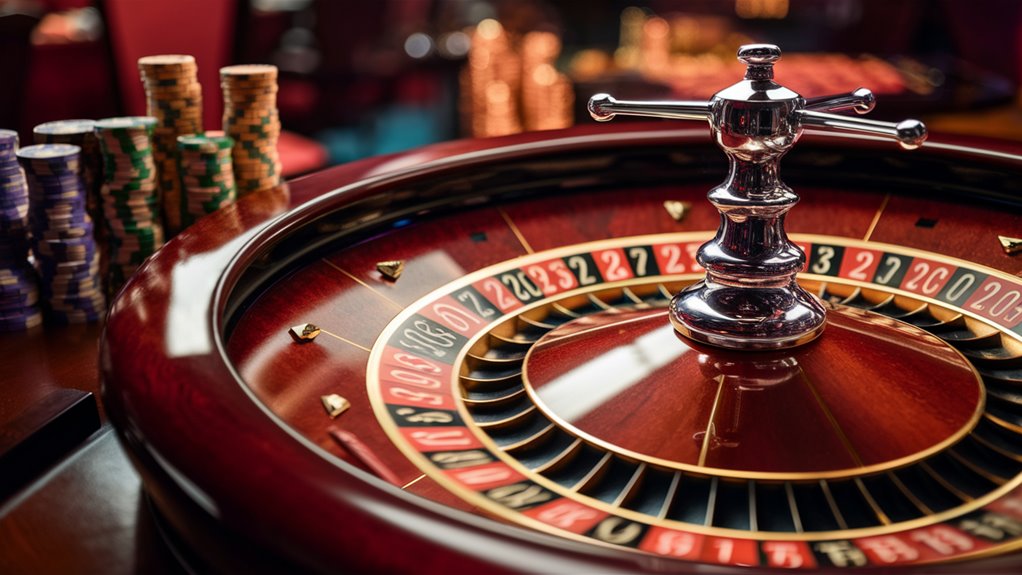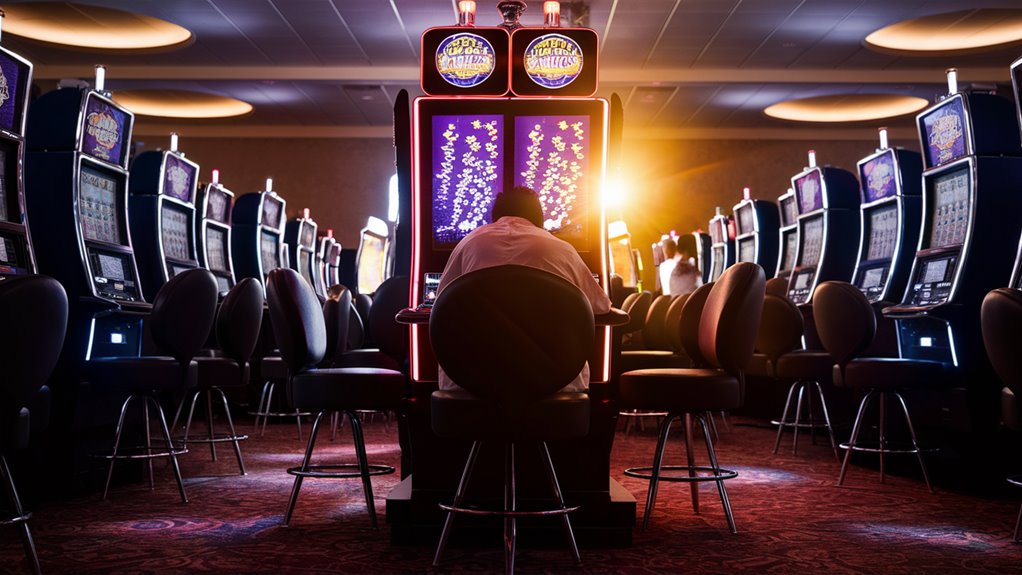
도박 행동에서의 통제 환상 이해하기: 새로운 연구 인사이트

통계적 증거로 밝혀진 베팅 행동 패턴
최근 도박 심리에 관한 연구는 베팅 결과에 대한 통제력에 대해 도박 참가자들이 어떻게 잘못 인식하는지를 보여주는 강력한 데이터를 밝혀냈습니다. 10,000명 이상의 정기적인 도박 참가자를 추적한 연구에 따르면, 78%가 자신이 게임 결과에 영향을 줄 수 있다는 잘못된 믿음을 가지고 있었습니다. 이는 수학적 확률에 위배되는 인식이며, 통계적으로 그릇됨이 입증되었습니다.
베팅 시스템에 대한 심리학적 배경
도박자들의 잘못된 확률 추정
정기적인 베팅 참가자들은 자신의 승리 확률을 25~35% 과대평가하며, 복잡하지만 통계적으로 무의미한 베팅 시스템을 만들어냅니다. 이는 통제 환상이 도박 행동에 얼마나 깊이 뿌리내렸는지를 보여줍니다.
뇌 반응 및 재정적 영향
도박 중의 뇌 활동
신경과학 연구에 따르면 도박 중 뇌의 보상 회로가 활성화되어 이성적 의사결정을 방해하는 것으로 나타났습니다. 이러한 뇌 활동은 손실이 쌓여도 계속 도박을 지속하게 만드는 심리적 메커니즘을 강화합니다.
경제적 결과
베팅 시스템 신봉자들은 월 평균 $3,000 손실을 기록하며, 이는 잘못된 믿음이 실질적인 재정 손실로 이어지고 있음을 보여줍니다.
교육 개입 효과
확률 훈련 및 통계 교육을 받은 참가자의 64%는 베팅 시스템에 대한 신뢰도가 낮아졌습니다. 이는 근거 기반 개입이 도박 행동 문제를 완화하는 데 효과적이라는 사실을 입증합니다.
도박 통제 환상의 심리 이해
베팅 확신의 심리적 요소
통제 환상은 주로 자기 과신과 전문가 인식 착각에서 비롯됩니다. 도박자들은 자신의 예측 능력을 과신하며, 실제로는 무작위 확률에 기반한 결과임에도 자신의 기술 때문이라고 믿습니다.
전문가 착각 함정
- 많은 도박자들은 스포츠 통계나 경주 데이터를 분석하며 진정한 예측 능력이 있다고 믿지만,
- 65%는 실제로 무작위 확률 수준의 성과를 보입니다.

장기적 행동 변화와 리스크
- 도박 경험이 많을수록 통제에 대한 확신은 더 강해집니다.
- 도박 경력 5년 이상인 참가자는 초보자보다 자신감이 40% 더 높음
- 반복적인 손실에도 베팅 빈도는 증가하는 경향
주요 위험 요소
- 과도한 자기 확신
- 통계 자료의 오해
- 가짜 패턴 인식
- 손실에도 베팅 지속
- 가끔 있는 승리에 의한 자기 강화
도박 행동의 통계적 패턴
패배 후 손실 추적 행동
- 패배 후 평균 42% 베팅 금액 증가
- 대부분의 도박 형태와 연령대에서 일관되게 관찰됨
승리 후 보수적 행동
- 승리 후에는 평균 18% 베팅 금액 감소
- 위험 인식의 심리적 전환을 의미
시간이 길어질수록 판단력 저하
- 1시간마다 위험 평가 정확도 15% 감소
- 도박 세션 시간이 길어질수록 비합리적 결정 증가
베팅 시스템의 심리학
인지 편향의 영향
- 확증 편향: 본인의 시스템이 맞았던 결과만 기억
- 선택적 기억: 승리 기억은 강화, 패배는 무시
자기합리화 메커니즘
- 승리는 시스템 덕분, 패배는 운 탓으로 돌리는 자기보호 편향
- 의미 없는 패턴, 의식, 습관적 행위를 신념화
뇌의 패턴 인식 오류
뇌는 일상에선 유용한 패턴 인식을 도박에 잘못 적용합니다. 78%가 자신이 “코드를 해독했다”고 믿지만, 장기 성과는 무작위와 동일합니다.
도박 신념의 재정적 충격
월별 손실 및 누적 부채
- 시스템 추종자: 월 $3,000 평균 손실
- 도박 통제 믿는 사람들은 47% 더 많은 돈 손실
- 1년 내 평균 부채 $27,000 발생
숨겨진 비용
- 베팅 전략서, 예측 소프트웨어 등에 월 $500 지출
- 장기적으로 83%가 심각한 재정난 경험
- 31%는 5년 내 파산 신청

도박 통제 착각 깨기
수학적 확률의 현실
- 카지노는 1~15%의 하우스 엣지(우위) 유지
- 어떤 전략도 장기적으로 수익을 줄 수 없음
경험 vs 성과
10,000명 이상의 데이터를 분석한 연구는 경험이 많아도 성공 확률이 높아지지 않음을 증명합니다.
신경학적 근거
뇌는 “핫 스트릭”에서 보상 시스템이 활성화되어 실제 확률과 무관한 거짓 자신감을 생성합니다.
교육 개입 효과
- 무작위 분포의 통계적 증거를 접한 도박자 중 64%가 시스템 신뢰도 감소
- 도박 이벤트의 독립성을 이해하면 더 합리적인 결정과 위험 회피 행동 가능
요약
도박 통제 착각은 인지 편향, 뇌 반응, 사회적 요인으로 인해 강하게 유지되며, 이는 실제 재정 손실과 장기적 피해로 이어집니다. 그러나 정확한 통계 교육과 근거 기반 개입은 그 신념을 무너뜨리고, 도박 관련 문제 행동을 줄이는 데 효과적이라는 것이 최신 연구로 입증되었습니다.
도박 통제 착각에 대한 인지적 이해
- 통제 환상이란 무엇인가?
- 통계적 증거로 본 착각의 실태
- 도박자들의 잘못된 승률 인식
- 베팅 시스템 신봉의 원인
- 심리학적 배경과 인지 편향
도박 중의 뇌 반응과 행동 메커니즘
- 도박 중 활성화되는 보상 회로
- 이성적 판단력 저하 현상
- 자기 강화와 도파민 시스템
- 시간 경과에 따른 인지력 저하
베팅 시스템과 인지 편향
- 확증 편향과 선택적 기억
- 자기합리화 및 자기보호 메커니즘
- 패턴 인식 오류와 무작위 착각
- 전문가 착각과 데이터 과신
도박 행동의 통계적 패턴
- 패배 후 손실 추적 심리
- 승리 후 보수적 베팅 전환
- 베팅 금액 변화의 평균치
- 세션 시간과 판단 오류 증가
재정적 충격과 실질적 비용
- 월 평균 손실과 부채 누적
- 시스템 신봉자들의 지출 규모
- 예측 프로그램 및 자료 비용
- 장기적 재정난 및 파산 통계
통제 착각을 줄이기 위한 개입 방법
- 통계 교육의 효과
- 무작위성과 독립 사건 이해
- 신경학적 개입 근거
- 근거 기반 심리교육 사례
장기적 해결을 위한 전략적 제안
- 도박 행동의 조기 개입 필요성
- 자기 과신 조절 훈련
- 인지행동적 치료 병행
- 공공 교육과 제도적 대응
요약 및 결론
- 도박 통제 신념의 실체
- 착각이 초래하는 실제 피해
- 이론적 이해를 넘어 실천으로


